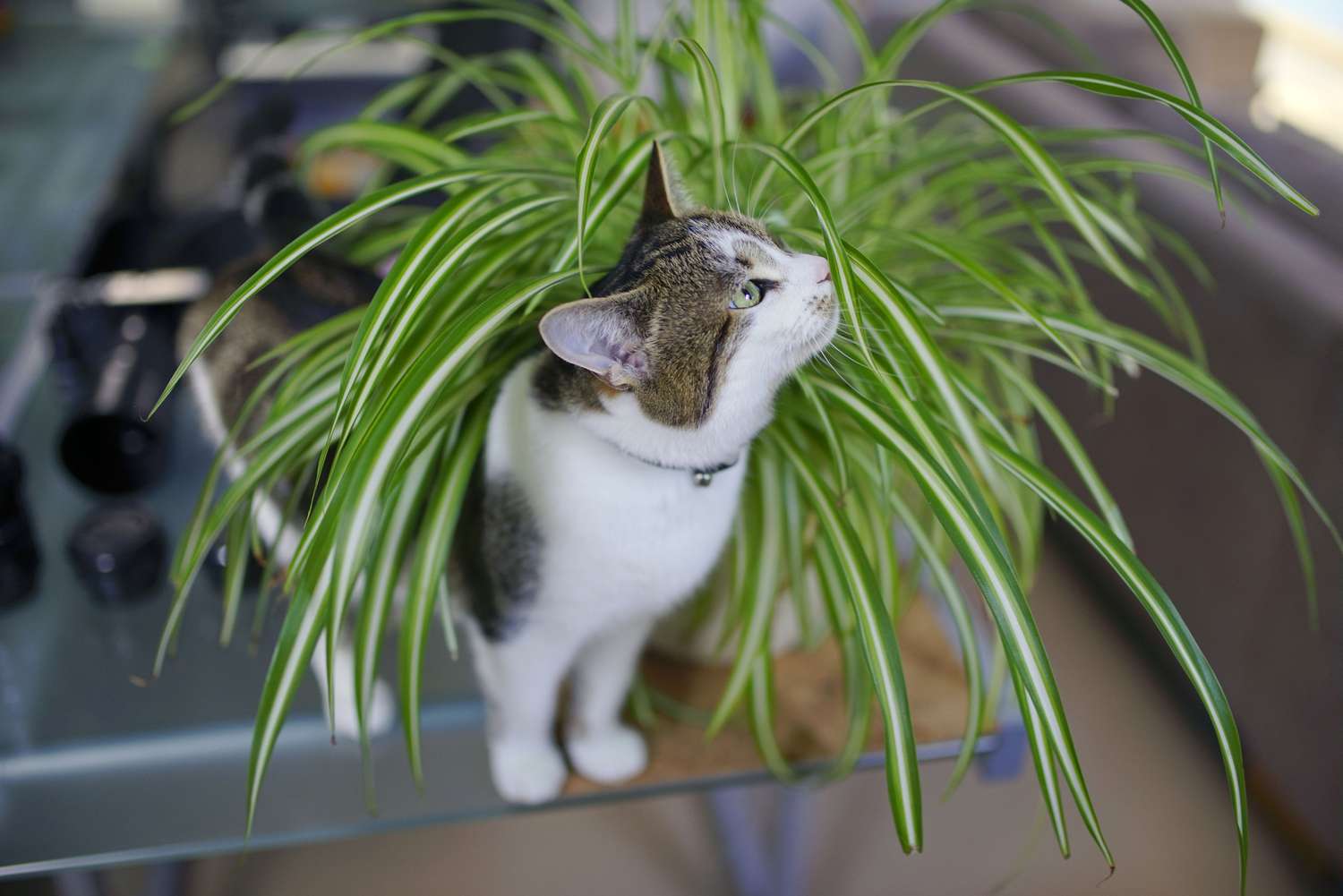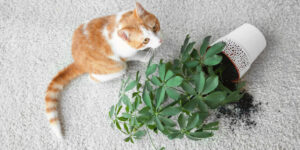
Are Spider Plants Toxic to Cats?
Spider plants, scientifically known as Chlorophytum comosum, are among the most popular houseplants due to their attractive appearance and ease of care. They are characterized by long, arching leaves and produce small white flowers that eventually develop into baby spider plants, often referred to as spiderettes. While these plants are beloved by many, a common concern among pet owners is whether spider plants are safe for cats. This article explores the toxicity of spider plants to cats, their effects, and how to manage their presence in homes with feline companions.
Overview of Spider Plants
Spider plants are native to tropical and southern Africa but have become widespread as houseplants in various climates. They thrive in a variety of conditions, making them suitable for indoor environments. Spider plants are known for their air-purifying qualities, helping to improve indoor air quality by removing pollutants.
The consensus among veterinary professionals and pet safety organizations is that spider plants are non-toxic to cats. According to the ASPCA (American Society for the Prevention of Cruelty to Animals), spider plants do not pose a poisoning risk to felines. However, while they are considered non-toxic, there are some important considerations to keep in mind.
Mild Hallucinogenic Effects
Spider plants contain certain compounds that can produce mild hallucinogenic effects in cats, similar to the effects of catnip. This attraction can lead to cats being drawn to the plant, often resulting in them nibbling on the leaves. While this behavior is generally harmless, excessive ingestion can lead to gastrointestinal upset, including symptoms such as vomiting and diarrhea.
Potential Risks of Spider Plant Ingestion
Although spider plants are not toxic, the ingestion of large quantities can cause mild gastrointestinal irritation. Here are some potential effects of cats consuming spider plants:
- Vomiting: Cats may vomit after consuming large amounts of spider plant leaves due to irritation of the stomach lining.
- Diarrhea: Similar to vomiting, diarrhea can occur if a cat ingests too much of the plant.
- Upset Stomach: Cats may experience discomfort or an upset stomach after eating spider plants.
Why Are Cats Attracted to Spider Plants?
Cats are naturally curious creatures, and their attraction to spider plants can be attributed to several factors:
- Texture: The long, arching leaves of spider plants are appealing for cats to bat at and chew on.
- Mild Hallucinogenic Properties: The compounds in spider plants can induce behaviors similar to those seen with catnip, making them enticing for cats.
- Boredom: Cats may nibble on plants out of boredom or as a way to explore their environment.
Keeping Spider Plants Safe from Cats
To ensure the safety of both your spider plants and your cats, consider the following tips:
- Placement: Keep spider plants out of reach of your cats. Hanging baskets or high shelves are ideal locations.
- Provide Alternatives: Offer cat grass or other safe plants for your cat to chew on. This can help satisfy their urge to nibble without harming them.
- Monitor Plant Health: Ensure that your spider plants are free from pesticides and fertilizers that could be harmful to your pets.
Table: Spider Plant Characteristics and Safety
| Characteristic | Details |
|---|---|
| Scientific Name | Chlorophytum comosum |
| Common Names | Spider Plant, Ribbon Plant, Spider Ivy |
| Toxicity to Cats | Non-toxic |
| Potential Effects of Ingestion | Mild gastrointestinal upset (vomiting, diarrhea) |
| Attractiveness to Cats | Mild hallucinogenic effects, texture of leaves |
| Recommended Care | Keep out of reach, provide cat-safe alternatives |
Conclusion
In summary, spider plants are safe for cats, as they are classified as non-toxic. However, pet owners should be aware that excessive consumption can lead to mild gastrointestinal upset. By placing spider plants out of reach and providing alternative chewing options, cat owners can enjoy the beauty of these plants without compromising their pets’ health.
FAQs
1. Are spider plants safe for cats?
Yes, spider plants are non-toxic to cats, but they can cause mild gastrointestinal upset if ingested in large quantities.
2. Why do cats like spider plants?
Cats are attracted to spider plants due to their texture and mild hallucinogenic properties, which can induce playful behavior similar to catnip.
3. What happens if a cat eats spider plants?
While spider plants are non-toxic, eating them can lead to mild symptoms such as vomiting or diarrhea if consumed in excess.
4. How can I prevent my cat from eating my spider plant?
Keep the spider plant out of reach, such as on high shelves or in hanging baskets, and provide safe alternatives like cat grass.
5. Where can I find more information about spider plants and their safety for pets?
For detailed information, you can visit the ASPCA’s page on spider plants.
Final Thoughts
Having spider plants in a home with cats can be a delightful experience, as these plants add beauty and improve air quality. By understanding their effects on cats and taking appropriate precautions, pet owners can create a safe environment for both their plants and their feline friends.


